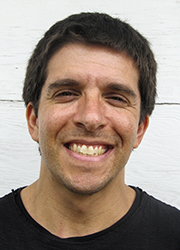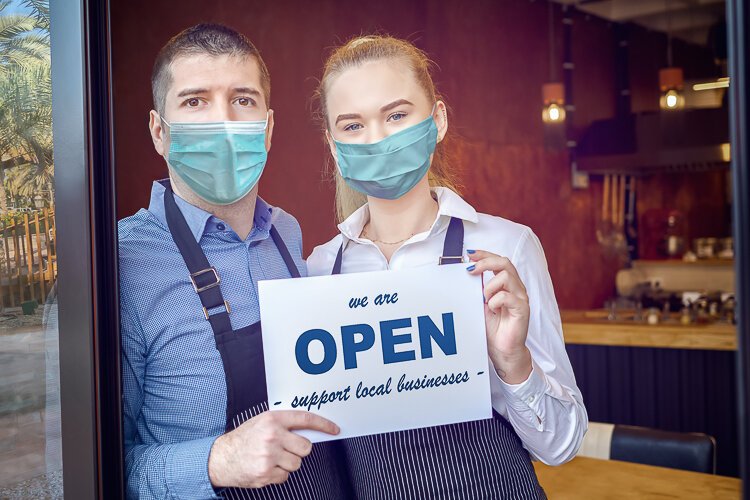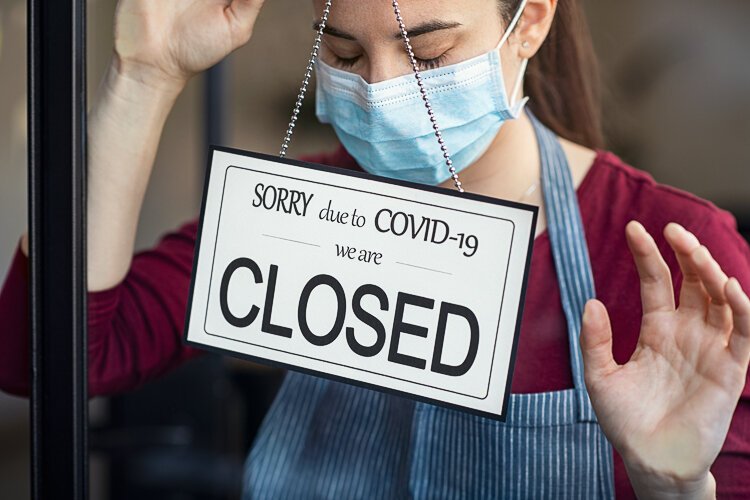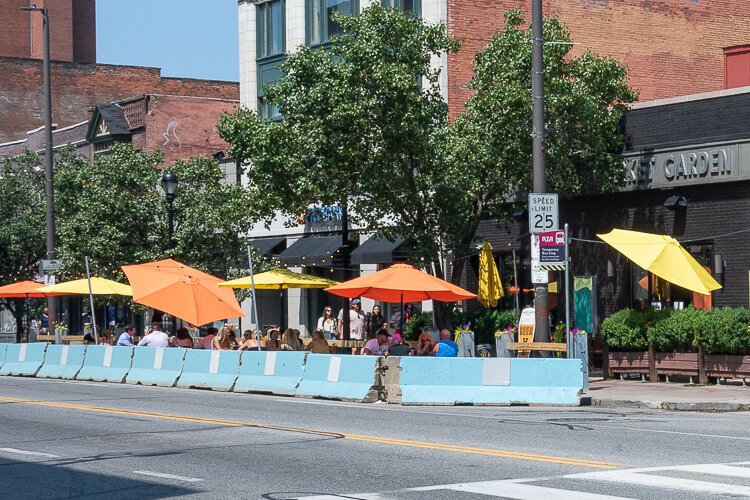Work group shines a bright light on the efforts of CDCs to meet regional economic development needs
For years, community development corporations (CDCs) have played an integral role in guiding Cleveland neighborhoods through all manner of crises. Twenty months into an unprecedented health emergency has emphasized the importance of this work even more.
That’s not to say CDCs must act as walled-off entities only worried about their small fiefdoms. While every Greater Cleveland community carries its own troubles, an assembly of local CDC managers and development directors—collectively named the Economic Development Working Group—is taking a joint approach in meeting pressing regional needs.
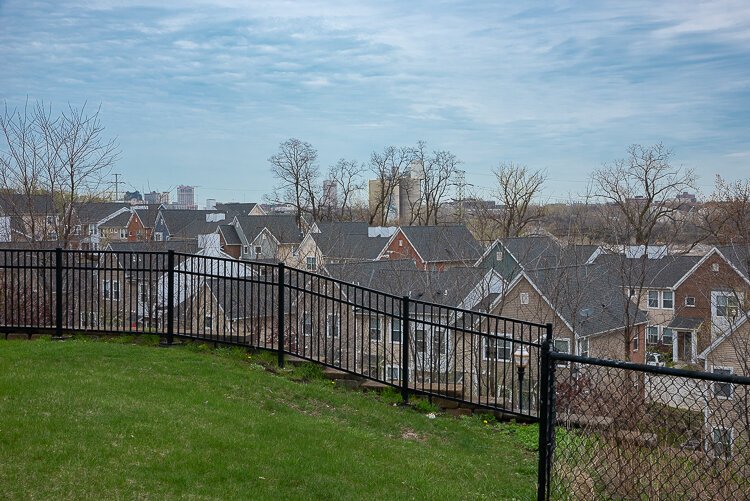 While every Greater Cleveland community carries its own troubles the Economic Development Working Group is taking a joint approach in meeting pressing regional needs.“CDCs can get siloed by just focusing on their neighborhoods,” says Michael Elliott, director of neighborhood development at Cleveland Neighborhood Progress (CNP). “But our group is bringing everyone together to share ideas as a way to make the entire city of Cleveland better off.”
While every Greater Cleveland community carries its own troubles the Economic Development Working Group is taking a joint approach in meeting pressing regional needs.“CDCs can get siloed by just focusing on their neighborhoods,” says Michael Elliott, director of neighborhood development at Cleveland Neighborhood Progress (CNP). “But our group is bringing everyone together to share ideas as a way to make the entire city of Cleveland better off.”
Although organization leaders met regularly before the pandemic, the virus crisis accelerated advocacy for Cleveland residents and small businesses. As CDCs were already at the front lines of numerous community services and neighborhood development programs, the working group exists to underline that commitment.
The group, which has been meeting virtually since the start of the pandemic, invites all CDCs to attend bi-weekly meetings. Member backgrounds vary, from banking and financial services to real estate and law.
Elliott, who provides staffing support for the working group, says helping businesses weather the COVID-19 storm has brought the collective closer together. “We’re still addressing those issues around COVID, but we know there’s more to do than deal with the virus,” says Elliott. “We’re now thinking about other projects to work on together.”
One effort slated for early next year is offering white-box ready storefronts to small business owners. These spaces would require only minor renovations, giving entrepreneurs a “blank canvas” to work within at minimal costs.
“With businesses leaving or closing due to the coronavirus, we asked how we could get those spaces ready,” says Elliott. “Not having to do so much renovation helps businesses and landlords. It’s a money-saver for these businesses.”
 While every Greater Cleveland community carries its own troubles the Economic Development Working Group is taking a joint approach in meeting pressing regional needs.Cleveland’s ‘unspoken heroes’
While every Greater Cleveland community carries its own troubles the Economic Development Working Group is taking a joint approach in meeting pressing regional needs.Cleveland’s ‘unspoken heroes’
Lucas Reeve, director of neighborhood development with the Old Brooklyn CDC, joined the working group in January 2020. Coming along pre-pandemic illuminated how much each Cleveland neighborhood is challenged by similar economic and social issues. Reeve says he also appreciates the varied perspectives group members bring in tackling these obstacles.
“We’re all interconnected, even if our neighborhoods have their own unique characteristics,” Reeve explains. “Folks on the team have different backgrounds, too, so the conversations end up being very enlightening.”
Reeve adds that the collaboration among the different neighborhoods and CDC has been admirable. “It’s inspiring that the group just didn’t go into triage mode during the pandemic to focus on their own communities,” he says. “Everyone’s thoughts were to use this group for as many businesses across the city as we could.”
Projects like the white-box initiative receive feedback from external partners such as the city of Cleveland and the Destination Cleveland convention and visitors bureau. CDCs and city administratorswork in real-time to address crucial small business challenges—what Elliott calls a “game-changer” for endeavors like parklet permits for restaurants seeking to expand outdoor seating.
“The working group has shown its partners the value of CDCs,” says Elliott. “Although I’m no longer working with businesses directly, I’m afforded to see the small business development ecosystem from both a grassroots level with the working group, and a 30,000-foot perspective as an intermediary. It’s about trying to connect the dots between CDCs and other local and regional economic and community development partners.”
The hard-working collection of economic development practitioners has created a vast ecosystem of regional knowledge and resources, notes group co-chair Khalid Hawthorne, director of real estate development for Tremont West CDC.
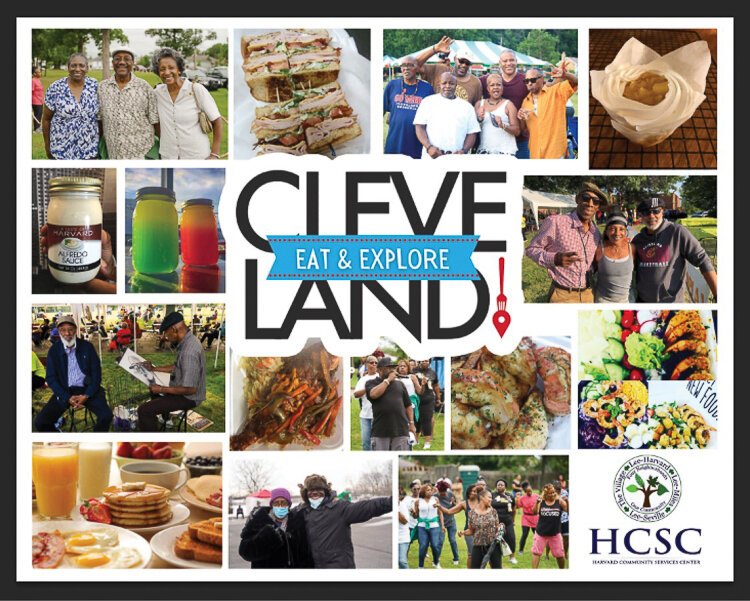 Among other COVID-related efforts, the collaboration assisted on last winter’s launch of Eat & Explore CLE,which encouraged residents to support locally-owned restaurants, shops and hospitality businesses. CNP quarterbacked the initiative along with Destination Cleveland and Downtown Cleveland Alliance.
Among other COVID-related efforts, the collaboration assisted on last winter’s launch of Eat & Explore CLE,which encouraged residents to support locally-owned restaurants, shops and hospitality businesses. CNP quarterbacked the initiative along with Destination Cleveland and Downtown Cleveland Alliance.
“Mike [Elliott] brought us together through that plan of action,” says Hawthorne. “We were able to coordinate through the working group, but each CDC had activation in their service area. The main focus was to introduce Cleveland to Clevelanders, so that’s where Destination Cleveland fell in line as well.”
A new iteration of Eat & Explore is being loosely discussed for this winter as businesses suffer supply chain concerns and employee shortages. While the supply chain is not in the working group’s purview, the collective can aid businesses in refurbishing their service models or adding resiliency in other ways.
Diversity of thought and background makes the group stronger, observes Elliott of CNP. With a new mayoral administration coming to Cleveland, local CDC leaders will look to bolster efforts around area small businesses even further.
“I work with a great group of individuals passionate about their work,” Elliott says. “CDCs are the city’s unspoken heroes—I’m glad to give attention and acknowledgement to the unique work they bring to Cleveland.”
This story is part of FreshWater’s series, Community Development Connection, in partnership with Cleveland Neighborhood Progress and Cleveland Development Advisors. The series seeks to raise awareness about the work of 29 Community Development Corporations (CDCs) as well as explore the efforts of neighborhood-based organizations, leaders, and residents who are focused on moving their communities forward during a time of unprecedented challenge.
